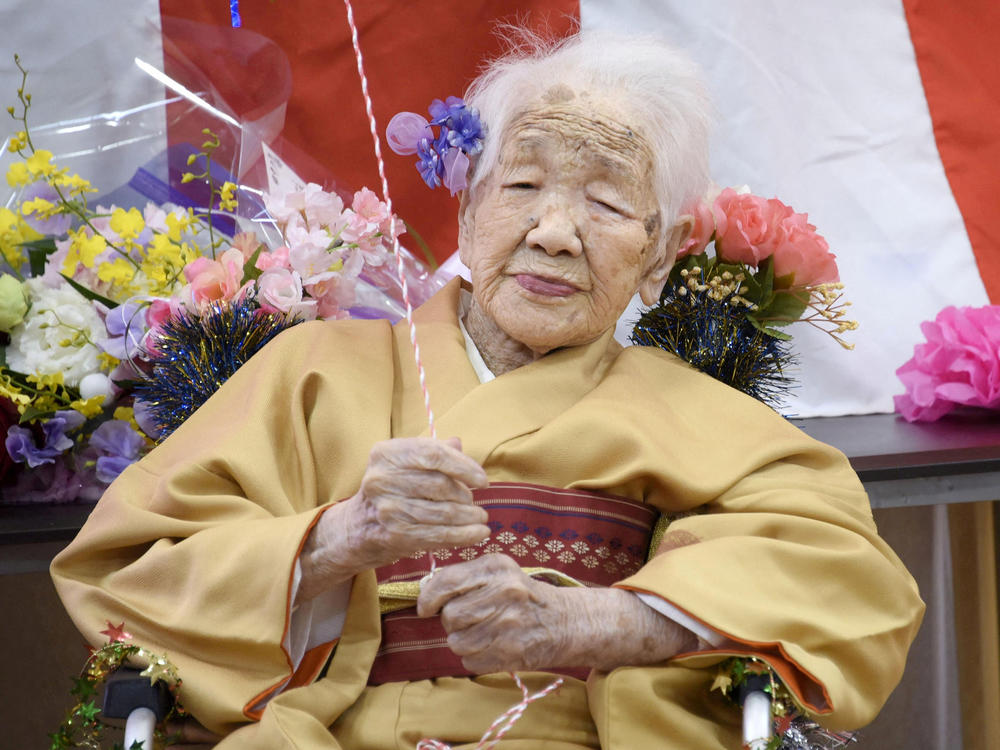Section Branding
Header Content
The world's oldest person, Japan's Kane Tanaka, dies at age 119
Primary Content
Although she didn't quite make it to her goal of 120 years old, Kane Tanaka still lived long enough to become the world's oldest person — a title she held for the past three years, and attributed to family, sleep, hope and faith.
Tanaka died last week at 119, Japanese authorities announced. Tanaka, who had been living at nursing home in Fukuoka, died on Tuesday at a hospital.
According to Guinness World Records, Tanaka was born prematurely on Jan. 2, 1903 — the same year the Wright brothers brought powered flight to the world. She was the seventh child in her family.
When she was 19, she married Hideo Tanaka, and helped run a family business selling sticky rice, udon, and the Japanese dessert zenzai.
She had four children and adopted a fifth.
Tanaka loved chocolate and soda. During a 2019 presentation ceremony to celebrate her being the oldest person alive, she was given a box of chocolates — which she immediately opened and began devouring.
Tanaka was tapped to carry the Olympic torch during as part of the torch relay leading up to the Olympic Games in Tokyo, but her relatives deemed it too risky given COVID-19.
Earlier this month, Tanaka surpassed Sarah Knauss of the U.S. to become the second-longest lived person in recorded history. Jeanne Louise Calment, a French woman who died in 1997, remains the longest-lived person at 122 years and 164 days.
The oldest currently living person is now said to be Lucile Randon, a 118-year-old French nun. Randon is also the oldest known survivor of COVID-19.
Copyright 2022 NPR. To see more, visit https://www.npr.org.

